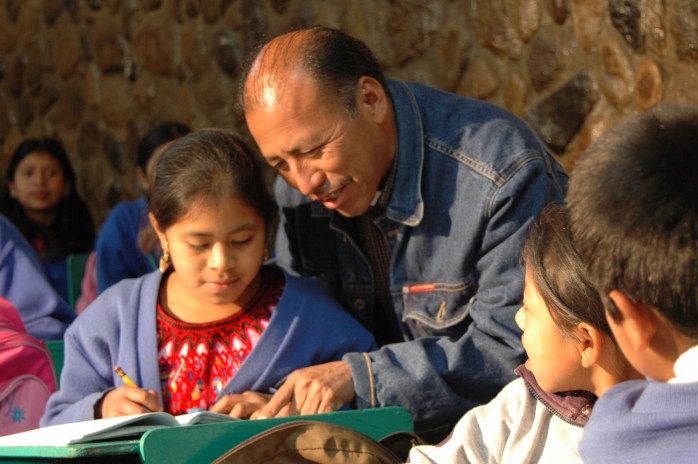
World Teachers’ Day: What is the message?
World Teachers’ Day, which was held last Friday, the 5th October, marks the day in 1966 when UNESCO (the United Nations Educational, Scientific and Cultural Organisation) and the ILO (International Labour Organisation) jointly adopted the Recommendation Concerning the Status of Teachers. This resolution called for countries to recognise the importance of teachers in raising and equipping the next generation and emphasised the respect and labour rights that teaching professionals should receive in recognition of this.
World Teachers’ Day in 2018
This year’s theme was ‘The right to education means the right to a qualified teacher”, according to a joint statement by UNESCO and UNICEF, the UN’s children’s fund. They write that: ‘Teaching is still not widely regarded as a valued profession. Its low prestige impedes efforts to recruit and retain teachers in poor and rich countries alike. As a result, a global shortage of teachers impedes the right of children and young people to access quality education.”
A message for the UK?
In the UK, the relatively low pay and prestige of teaching, in comparison to other professions and combined with a high workload, has led to a well-documented shortage of teachers and high drop-out rates (see the links below). Statistics show, for example, that in 2017, almost a quarter of teachers who had qualified since 2011 had left the profession. Furthermore, in poorer areas a shortage of teachers of specialist subjects means that teachers do not always have the desired qualifications. For example, only 17% of physics teachers in poorer areas outside of London actually have a relevant degree.
In recent years efforts to attract new graduates to the teaching profession have led to the creation of schemes such as Teach First. However, although evidence suggests that these graduates have indeed improved outcomes in the disadvantaged schools they are posted in, critics have pointed out that many graduates do not remain teachers beyond the first two years of the programme; indeed, even the name suggests that teaching is something you do ‘first’ before going on to something else. In these circumstances, it is perhaps not surprising that the UK has repeatedly lagged behind other developed countries in PISA rankings – the international system which scores student ability at reading, mathematics and science at age 15. In countries such as Singapore and Finland, which are regularly ranked among the top in the world, teaching is a highly sought-after career. For example, in 2015, just 7% of applicants to do the 5-year masters course needed to become a primary school teacher were given a place in Finland. Teaching is given a high profile in society, and teachers are respected as highly-trained professionals.
World Teachers’ Day is an opportunity for us as individuals to think about the role special teachers might have played in our own lives, and ask broader questions about how we view and treat our teaching professionals in the UK.